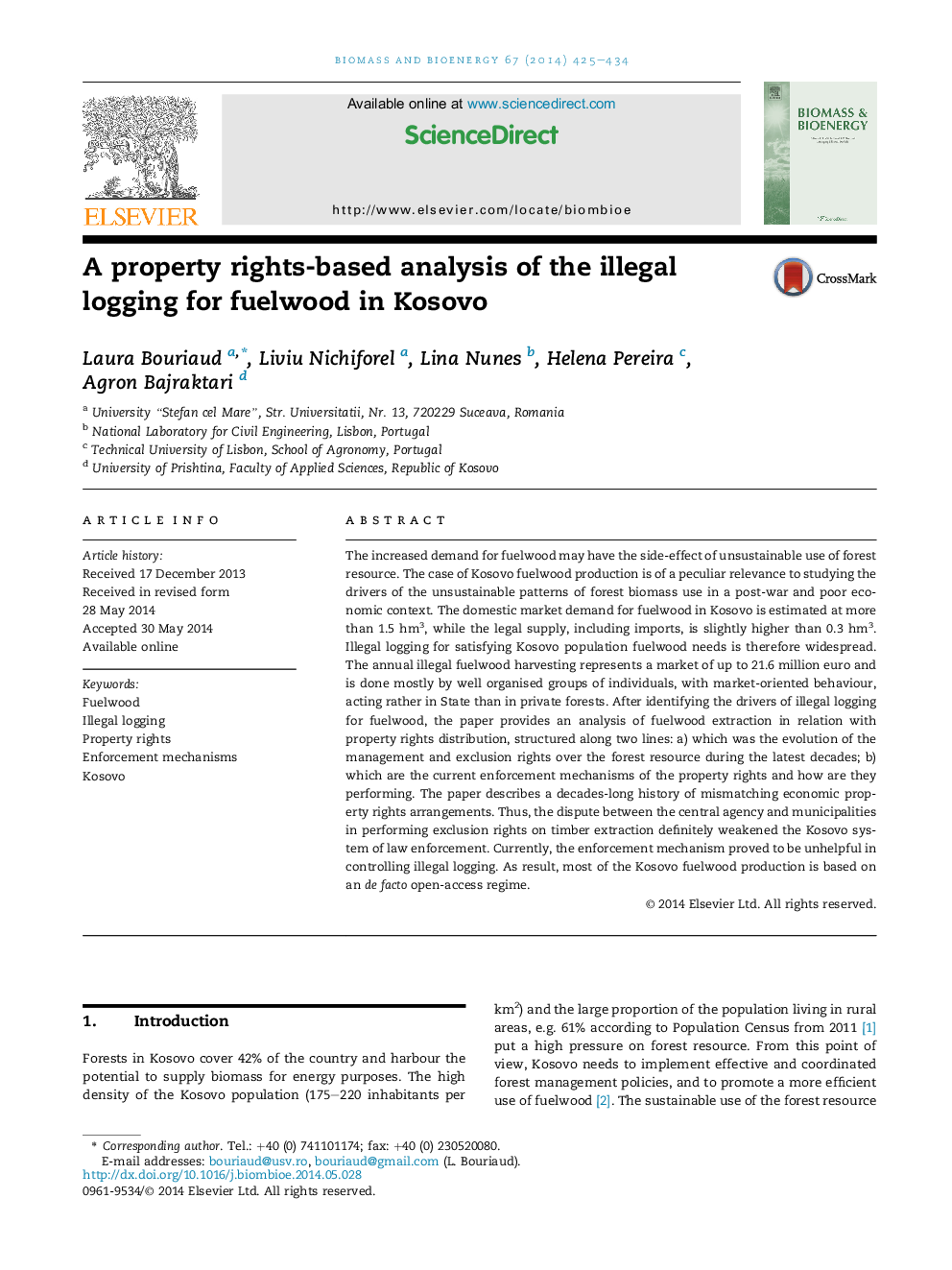| Article ID | Journal | Published Year | Pages | File Type |
|---|---|---|---|---|
| 7064595 | Biomass and Bioenergy | 2014 | 10 Pages |
Abstract
The increased demand for fuelwood may have the side-effect of unsustainable use of forest resource. The case of Kosovo fuelwood production is of a peculiar relevance to studying the drivers of the unsustainable patterns of forest biomass use in a post-war and poor economic context. The domestic market demand for fuelwood in Kosovo is estimated at more than 1.5 hm3, while the legal supply, including imports, is slightly higher than 0.3 hm3. Illegal logging for satisfying Kosovo population fuelwood needs is therefore widespread. The annual illegal fuelwood harvesting represents a market of up to 21.6 million euro and is done mostly by well organised groups of individuals, with market-oriented behaviour, acting rather in State than in private forests. After identifying the drivers of illegal logging for fuelwood, the paper provides an analysis of fuelwood extraction in relation with property rights distribution, structured along two lines: a) which was the evolution of the management and exclusion rights over the forest resource during the latest decades; b) which are the current enforcement mechanisms of the property rights and how are they performing. The paper describes a decades-long history of mismatching economic property rights arrangements. Thus, the dispute between the central agency and municipalities in performing exclusion rights on timber extraction definitely weakened the Kosovo system of law enforcement. Currently, the enforcement mechanism proved to be unhelpful in controlling illegal logging. As result, most of the Kosovo fuelwood production is based on an de facto open-access regime.
Related Topics
Physical Sciences and Engineering
Chemical Engineering
Process Chemistry and Technology
Authors
Laura Bouriaud, Liviu Nichiforel, Lina Nunes, Helena Pereira, Agron Bajraktari,
